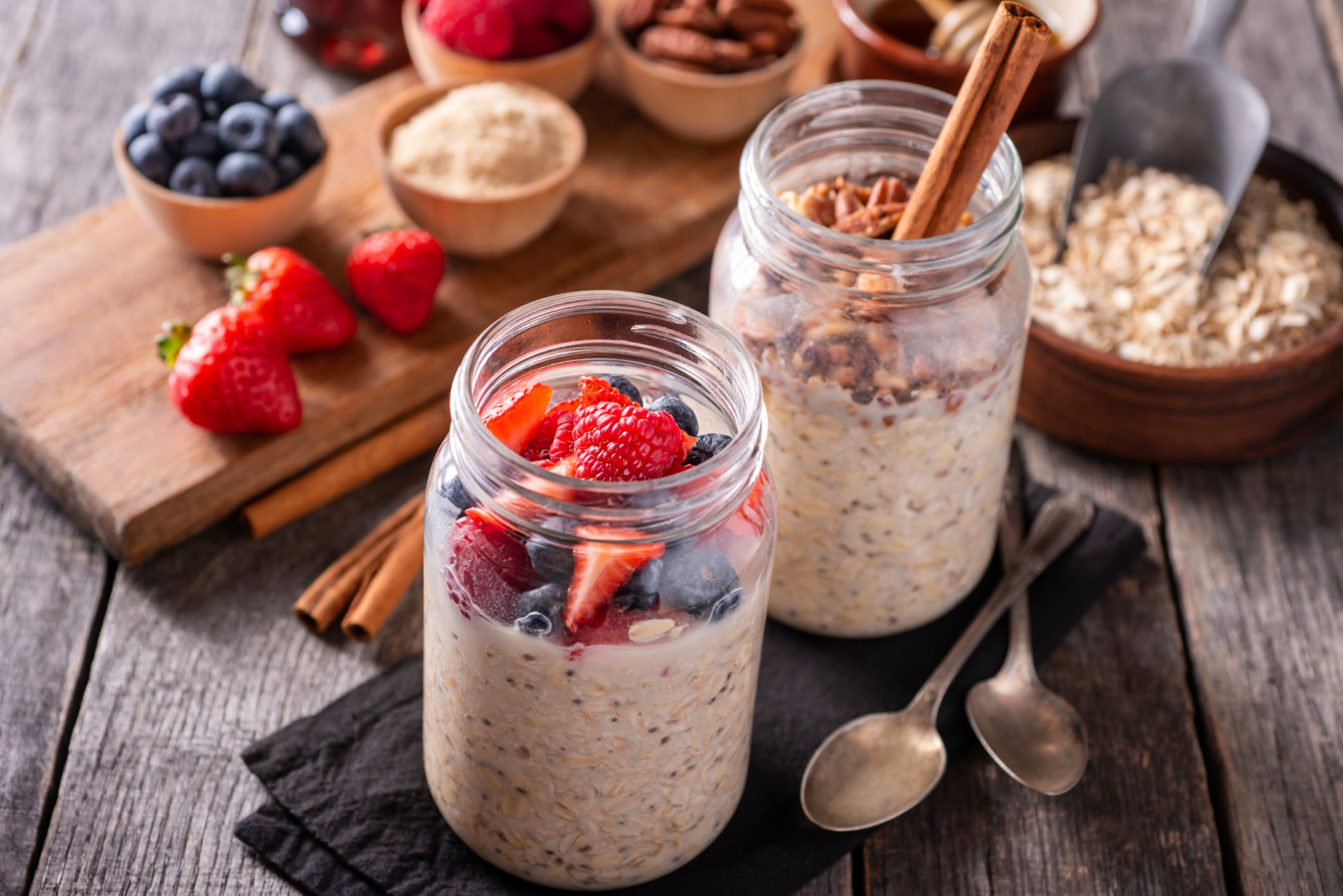The results, which were published in Nature Medicine, suggest that cutting down on processed foods could help people to sustain a healthy weight.
Led by researchers at UCL and University College London Hospital, the study is the first interventional study comparing ultra-processed food (UPF) and minimally processed food (MPF) diets in ‘real world’ conditions.
During the trial 55 adults were split into two groups, with one group starting on an eight-week diet of MPF, such as overnight oats. After a four-week period during which participants went back to their normal diet, they switched to a diet of UPF.
The other group completed the diets in the opposite order, with 50 participants completing at least one diet. The provided diets were nutritionally matched in accordance with the Eatwell Guide balanced diet, including levels of fat, saturated fat, protein, carbohydrate, salt, fibre, and fruits and vegetables.
After eight weeks on each diet, both groups lost weight, likely as a result of the improved nutritional profile of what they were eating compared to their normal diet. However, the effect was higher at an average 2.06% reduction in weight on the MPF diet compared to the UPF diet, which saw a 1.05% reduction.
These changes corresponded to an estimated calorie deficit of 290 kcal per day on the MPF diet, compared to 120 kcal per day on the UPF diet. The greater weight loss experienced on the MPF diet came from reductions in fat mass and total body water, with no change in muscle or fat-free mass.
“Previous research has linked ultra-processed foods with poor health outcomes, but not all ultra-processed foods are inherently unhealthy based on their nutritional profile,” said Dr Samuel Dicken, first author of the study from the UCL Centre for Obesity Research and UCL Department of Behavioural Science & Health.
“The main aim of this trial was to fill crucial gaps in our knowledge about the role of food processing in the context of existing dietary guidance, and how it affects health outcomes such as weight, blood pressure and body composition, as well as experiential factors like food cravings.”
Dr Dicken explained that reduction in the weight of participants engaging in the MPF diet was significant.
“Though a 2% reduction may not seem very big, that is only over eight weeks and without people trying to actively reduce their intake,” he continued.
“If we scaled these results up over the course of a year, we’d expect to see a 13% weight reduction in men and a 9% reduction in women on the minimally processed diet, but only a 4% weight reduction in men and 5% in women after the ultra-processed diet. Over time this would start to become a big difference.”
Professor Chris van Tulleken, an author of the study from UCL Division of Infection & Immunity and UCLH, added that poor health and obesity was being driven by the global food system, which has seen the wide availability of cheap, unhealthy food.
“This study highlights the importance of ultra-processing in driving health outcomes in addition to the role of nutrients like fat, salt and sugar,” said van Tulleken, who authored the book Ultra-Processed People.
“It underlines the need to shift the policy focus away from individual responsibility and on to the environmental drivers of obesity, such as the influence of multinational food companies in shaping unhealthy food environments.
“Stakeholders across disciplines and organisations must work together and focus on wider policy actions that improve our food environment, such as warning labels, marketing restrictions, progressive taxation and subsidies, to ensure that healthy diets are affordable, available and desirable for all.”





